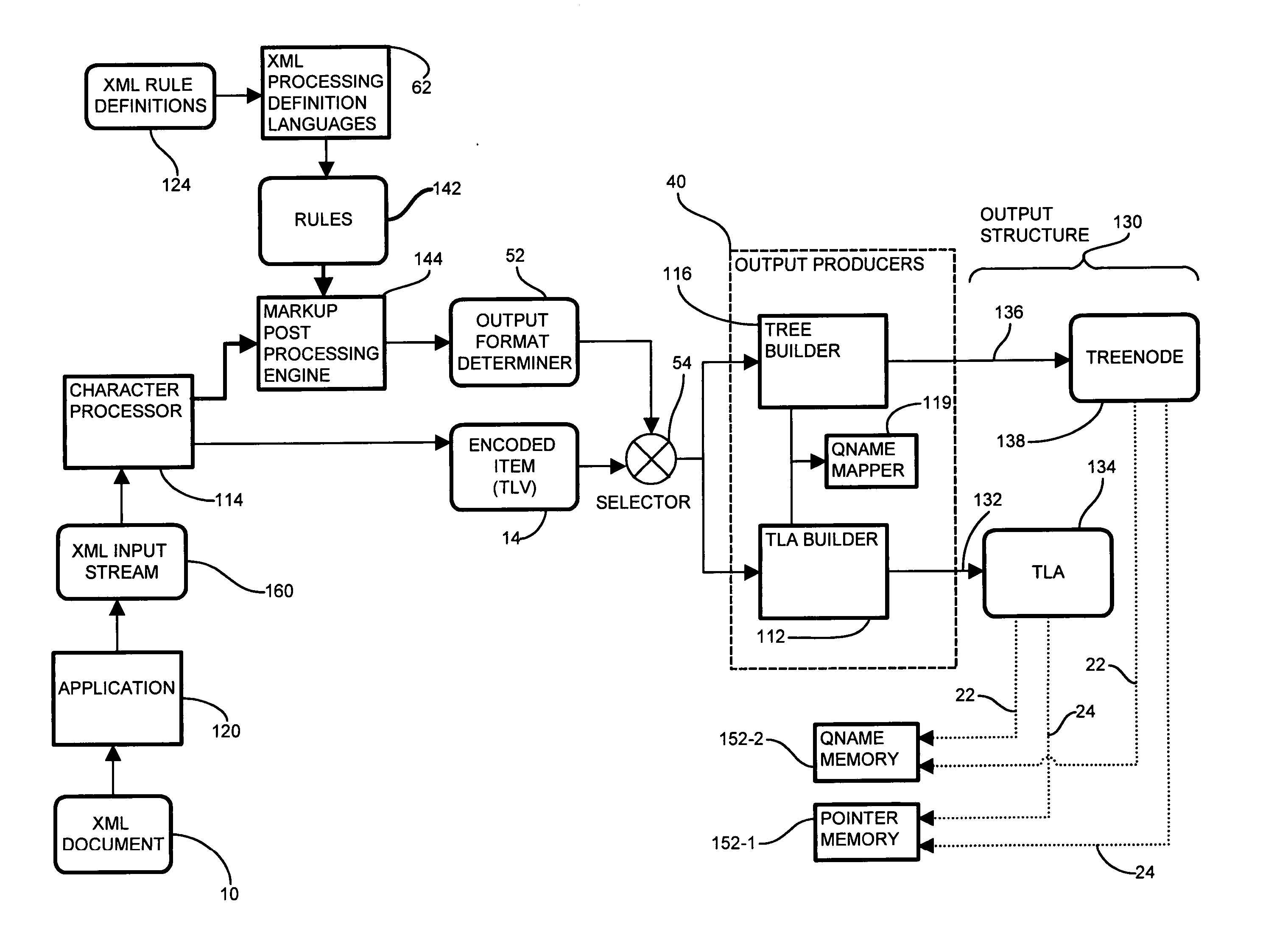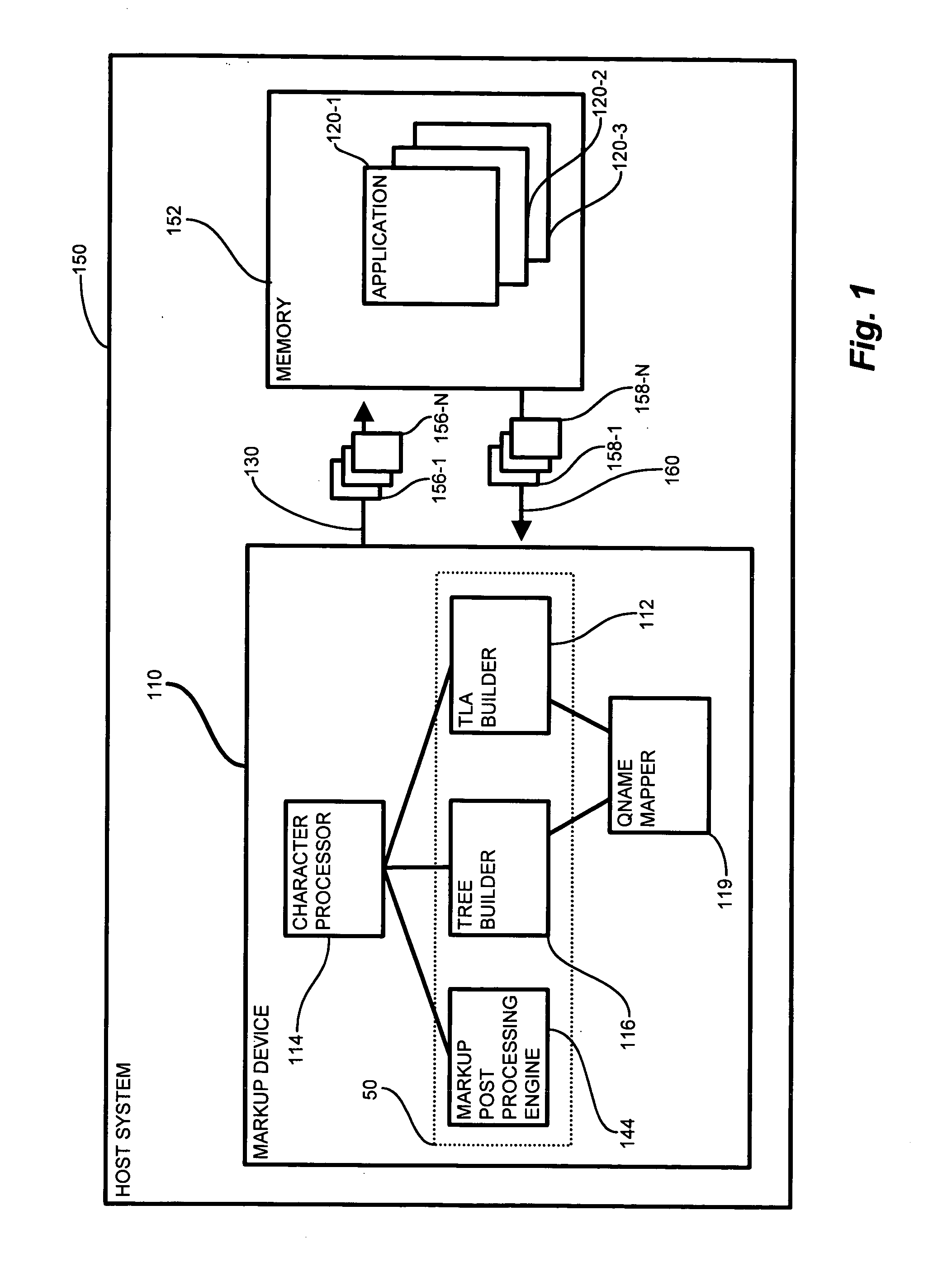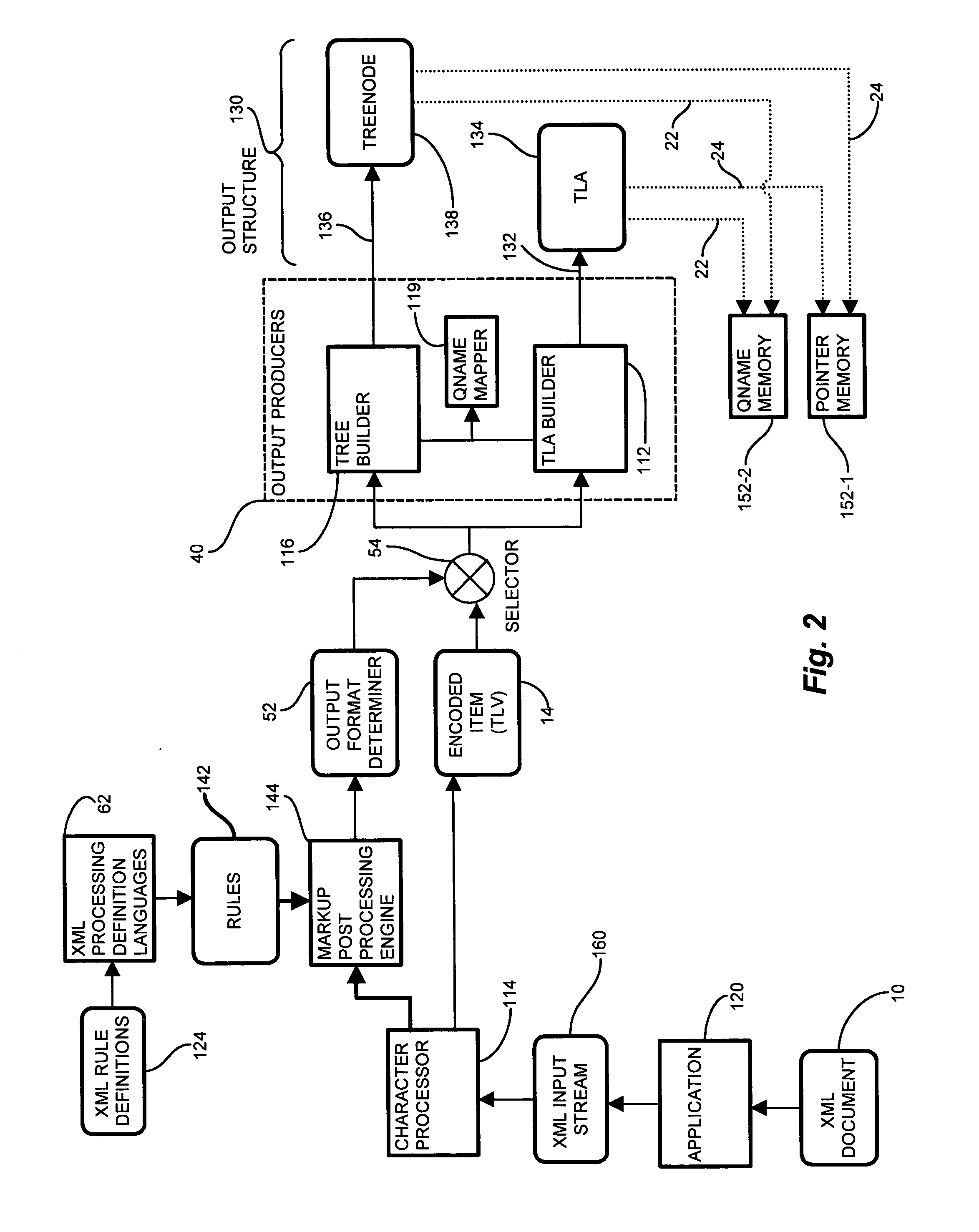Method and apparatus for processing markup language information
a markup language and information technology, applied in the field of method and apparatus for processing markup language information, can solve the problems of diluting the notion of platform independence, inability to reverse, and inefficient processing of such markup formats, and achieves the effect of reducing the cost of processing
- Summary
- Abstract
- Description
- Claims
- Application Information
AI Technical Summary
Benefits of technology
Problems solved by technology
Method used
Image
Examples
Embodiment Construction
[0035] The invention as defined by the present claims is based, in part, on the observation that information represented in XML or other text-based tagged data formats (e.g. markup language), is often a verbose, highly nested structure with complex patterns of data and metadata. Accordingly, processing via conventional “brute force” mechanisms such as software parsing rapidly exhibits degrading performance as the size or the complexity of data increases. Further, such approaches are typically “content blind,” in that the same approach is employed throughout the processing. No dynamic augmentation or modification to the parsing output is performed based on either preferences of the invoking application or in response to feedback based on the data being parsed.
[0036] Configurations of the invention substantially overcome the shortcoming of conventional markup processing by providing an adaptive and dynamic markup processing mechanism which processes information in an input stream suc...
PUM
 Login to View More
Login to View More Abstract
Description
Claims
Application Information
 Login to View More
Login to View More - R&D
- Intellectual Property
- Life Sciences
- Materials
- Tech Scout
- Unparalleled Data Quality
- Higher Quality Content
- 60% Fewer Hallucinations
Browse by: Latest US Patents, China's latest patents, Technical Efficacy Thesaurus, Application Domain, Technology Topic, Popular Technical Reports.
© 2025 PatSnap. All rights reserved.Legal|Privacy policy|Modern Slavery Act Transparency Statement|Sitemap|About US| Contact US: help@patsnap.com



